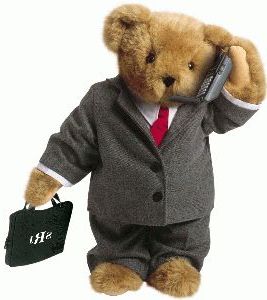Telemarketing fraud victims are of many different ethnic and socio-economic backgrounds and range from those with little formal education to those with professional degrees. All ages are affected, although seniors receive a large percentage of the calls. The problem with telemarketing fraud is that it is difficult to tell whether a caller is legitimate, and it is sometimes difficult for people to hang up on telemarketers. Certain individuals, and especially seniors, are targeted relentlessly by telemarketers. This is especially true if the person has already given money to a telemarketer or has been victimized in the past.
Common Telephone Scams
Prize offers: "You are eligible to win the grand prize!" "You have won the lottery!"
There is no prize, or the prize is worthless or overpriced. You are usually told that you have to pay something in advance to get your "free" prize. In most cases, you are told to pay "taxes", or "handling fees" or "delivery charges" or are forced to buy vitamins or some other product in order to receive your prize. Chances are you will never see any prize or winnings. In some situations, the offer of a prize is merely a ruse to obtain your credit card or checking account information.
It is against the law for a telemarketer to require you to pay ANY money or buy anything to enter a sweepstakes or contest. In Hawaii, it is against the law to participate in a lottery, whether the lottery is located in Hawaii or in another state or another country.
Charities: "You have given money to XYZ Law Enforcers Federation in the past, and we are asking for your annual contribution to our Children's Fund. We fight drug abuse, sponsor sports events for poor children, and publish a magazine. How many tickets can you buy?"
Con artists often label phony charities with names that sound like better-known, reputable organizations. They won't send you written information or wait for you to check them out with Consumer Protection or the Better Business Bureau. Because these organizations may not be actual charities, your contributions may not be tax-deductible.
Credit repair/loans: "We can repair your credit and get you a loan!"
Many companies promise, for an up-front fee, to repair credit or lend money, and then fail to provide the advertised services. It is against the law for a telemarketer to ask for an advance fee to repair your credit or get a loan.
Recovery rooms: "We know you got taken by a telemarketer and for a fee, we can help you recover the money you lost!"
You may be scammed a second time. It is against the law to ask for an advance payment to recover monies lost to telemarketers.
Tips to protect you from telemarketing fraud
Tell the caller that you do not wish to be called again, and hang up the phone. It is illegal for interstate telemarketers to call you if you have asked to be placed on their "do not call" list. Calling times are restricted to 8:00 a.m. to 9:00 p.m. local time. Interstate telemarketers must tell you if they are making a sales call, the name of the seller, and what they are selling before they make their pitch. If it's a prize promotion, they must tell you that no purchase or payment is necessary to enter or win.
Never buy at the time of the sales pitch. Always take your time making a decision.
Legitimate companies won't pressure you to make a fast decision. Never respond to an offer you don't thoroughly understand. Never send money or give out your credit card or bank account number to unfamiliar companies. Don't believe that giving some money to a telemarketer "just one time" will make him or her go away. You will probably receive even more calls.
Don't do business by phone with unfamiliar companies. Legitimate businesses understand when you want more information about their offer or company. Always ask for and wait until you receive written material about any offer or charity. If you feel the telemarketer is pressuring you, hang up.
Check with the Better Business Bureau and the State of Hawaii Office of Consumer
Protection to determine whether other consumers have filed complaints against the telemarketing organization you are investigating. Unfortunately, not all-bad businesses can be identified through these organizations.

